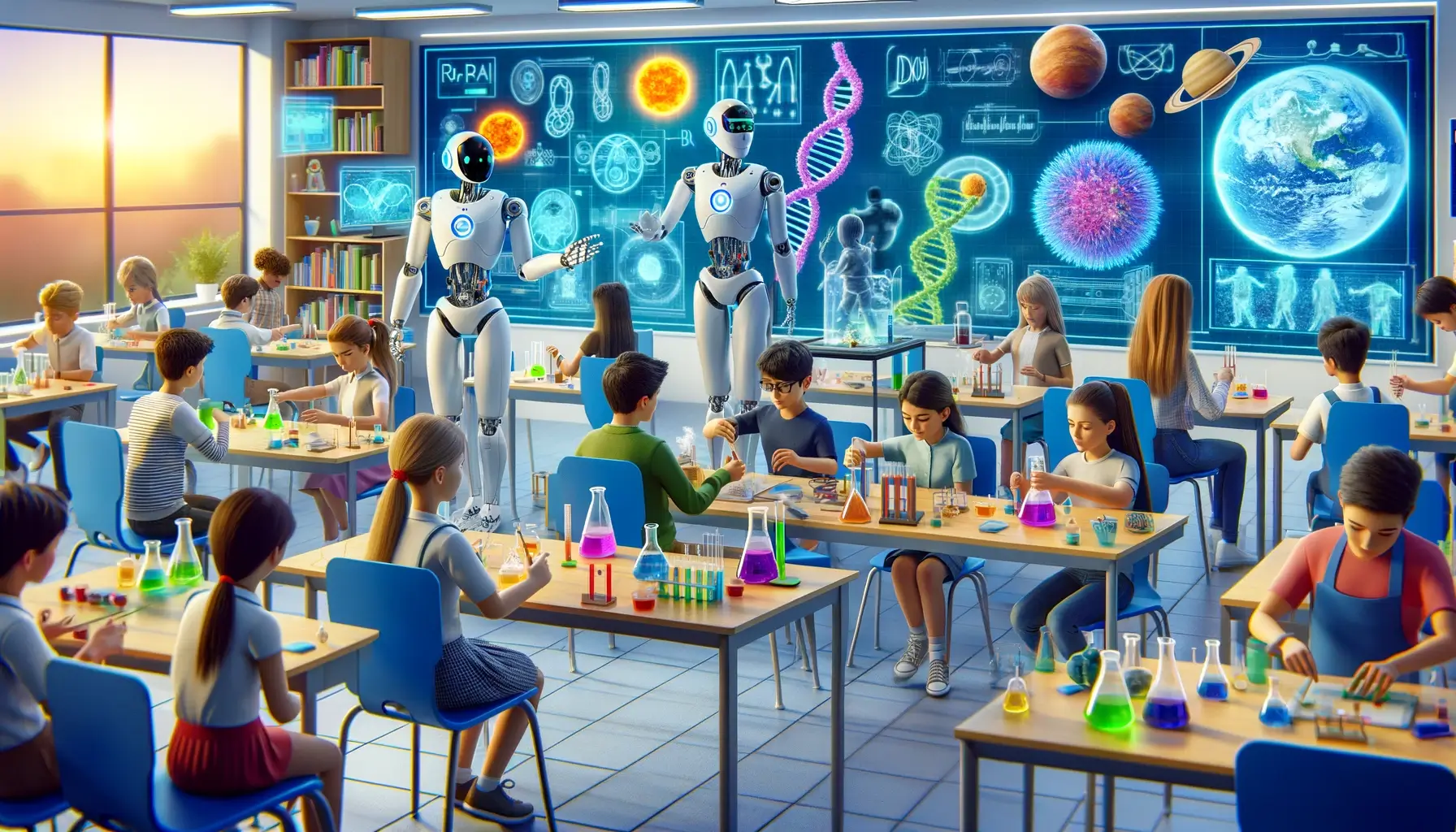The Role of AI in Transforming K-12 Science Education Globally
The integration of Artificial Intelligence (AI) into K-12 science classrooms is setting the stage for a revolutionary shift in global education paradigms. As we look towards the future, the potential of AI to reshape how science is taught and learned across diverse educational landscapes is immense. This global perspective on the future implications of AI in science education explores the broad possibilities, anticipates future trends, and considers the challenges that lie ahead.
Broadening Educational Horizons
Globally, AI has the potential to democratize science education, making high-quality resources and personalized learning experiences accessible to students in every corner of the world. AI-driven platforms could enable students from various socio-economic backgrounds to explore the wonders of science, from the basics of biology to the complexities of quantum physics, without the need for expensive lab equipment or resources. This could significantly reduce educational disparities, offering every student a chance to pursue a future in science.
Fostering Global Scientific Literacy
As AI becomes more integrated into the K-12 curriculum, we can anticipate a rise in scientific literacy worldwide. By providing tailored learning experiences that cater to individual strengths and weaknesses, AI can help students grasp difficult concepts more easily, fostering a deeper understanding of science. This global uplift in scientific literacy could inspire a new generation of scientists, researchers, and innovators, poised to tackle some of the world's most pressing challenges.
Predicting Future Trends in AI and Science Education
Looking ahead, AI is expected to evolve in ways that further enhance interactive learning and real-world applications. For instance, augmented reality (AR) and virtual reality (VR) could be combined with AI to create immersive learning experiences that transport students to different ecosystems, planets, or even inside the human body. These experiences could make science education more engaging and memorable, encouraging students to pursue STEM careers.
Moreover, as AI technologies advance, we may see the development of AI mentors capable of guiding students through complex scientific inquiries, offering insights based on vast databases of scientific knowledge. These AI mentors could provide a level of individual attention and expertise that supplements the efforts of human teachers, making science education more effective and personalized.
Addressing Challenges and Ensuring Equity
The path to integrating AI into global science education is not without its challenges. Issues such as ensuring data privacy, addressing ethical concerns, and preventing biases in AI algorithms are paramount. Moreover, the digital divide remains a significant hurdle, with access to technology varying greatly across different regions. Ensuring that AI-driven education tools are accessible and equitable will be crucial in preventing new forms of educational inequality.
Furthermore, training educators to effectively use AI tools and integrating these technologies into existing curricula will require substantial effort and resources. The success of AI in education will depend on a collaborative approach that involves educators, policymakers, technologists, and communities working together to navigate these challenges.
The future of AI in K-12 science education holds the promise of transforming the learning landscape globally. By making science education more accessible, personalized, and engaging, AI has the potential to inspire a new generation of learners. However, realizing this potential will require careful consideration of the challenges and a committed effort to ensure that the benefits of AI in education are accessible to all students, regardless of their geographical location or socio-economic status. As we move forward, the focus must remain on harnessing the power of AI to enrich science education while fostering an inclusive, equitable, and ethical framework for the future.
